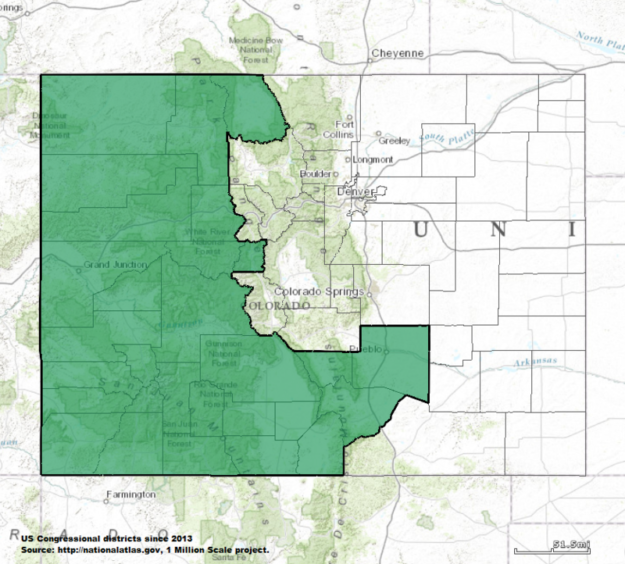Widgetized Section
Go to Admin » Appearance » Widgets » and move Gabfire Widget: Social into that MastheadOverlay zone
Independent redistricting commission far from finalizing Colorado congressional map

After four days of public hearings on a newly proposed Colorado congressional map, members of the state’s first-of-its-kind Independent Congressional Redistricting Commission appeared far from a consensus on how best to move forward with the once-a-decade redistricting process.
In a Friday afternoon meeting that ran more than 90 minutes over schedule, commissioners deliberated at length over six different proposed maps, approved a motion to “focus on” two of those maps for amendments going forward, and then expressed uncertainty and disagreement over what the approved motion meant. In the end, the commission signaled it would schedule an additional meeting on Monday to continue its discussion.
The clock is ticking on the commission as it works with nonpartisan staff at the state Capitol to draw a new congressional map for Colorado, including a newly apportioned 8th District, ahead of the 2022 midterm elections. Under a process established by voter-approved constitutional Amendments Y and Z in 2018, state staff will propose at least three redistricting plans before the commission votes on a final plan at the end of this month.
The first staff plan was released late last week, and proposed significant changes to Colorado’s 2nd District, extending its boundaries to include much of the northwestern corner of the state, and the 7th District, which would be expanded to include Park County and other mountain communities in surrounding counties. Like a “preliminary” plan released in June, it would create a new 8th District centered on the north Denver metro area.
Two additional proposed maps, prepared by nonpartisan staff at the request of commissioner Martha Coleman, were considered by the commission at its Friday meeting. The two maps are broadly similar to the first staff plan but propose alternative ways of drawing district boundaries on the Western Slope and in and around Denver.
In an informal ranked straw poll, commissioners preferred both of Coleman’s proposed alternatives to either the first staff plan or the preliminary plan. On a 9-3 vote, the commission approved a motion to “focus on” the two Coleman plans going forward, using them as a “starting point” from which they will request specific amendments ahead of the release of the second staff plan next week. Three Republican members of the commission — Danny Moore, Bill Leone and JulieMarie Shepherd Macklin — voted against the motion.
“The plan moving forward is that all elements of all maps are still in play, but we’re going to try to focus on amendments to these two top maps,” said commission Vice Chair Jolie Brawner.
Immediately after the vote, however, Coleman herself voiced uncertainty about how the commission and nonpartisan staff could proceed based on both maps as a starting point, and Leone cried foul over the meaning of the approved motion.
“I’m not certain how staff will be able to fashion one map from the choice of two,” Coleman said.
“I just want to make a really strong protest at this process,” Leone said. “We haven’t voted on any instructions to staff. All we voted on was to have the commission focus on these two plans — that’s not an instruction to staff, and if that had been the vote, I don’t think people would have voted that way.”
“The lack of clarity on the process is killing us,” he added.
If the 12-member commission cannot approve a final map on a two-thirds vote before Oct. 1, the third plan prepared by nonpartisan state staff will be submitted to the Colorado Supreme Court for review.
Editor’s note: This story first appeared on Colorado Newsline, which is part of States Newsroom, a network of news bureaus supported by grants and a coalition of donors as a 501c(3) public charity. Colorado Newsline maintains editorial independence. Contact Editor Quentin Young for questions: info@coloradonewsline.com. Follow Colorado Newsline on Facebook and Twitter.


